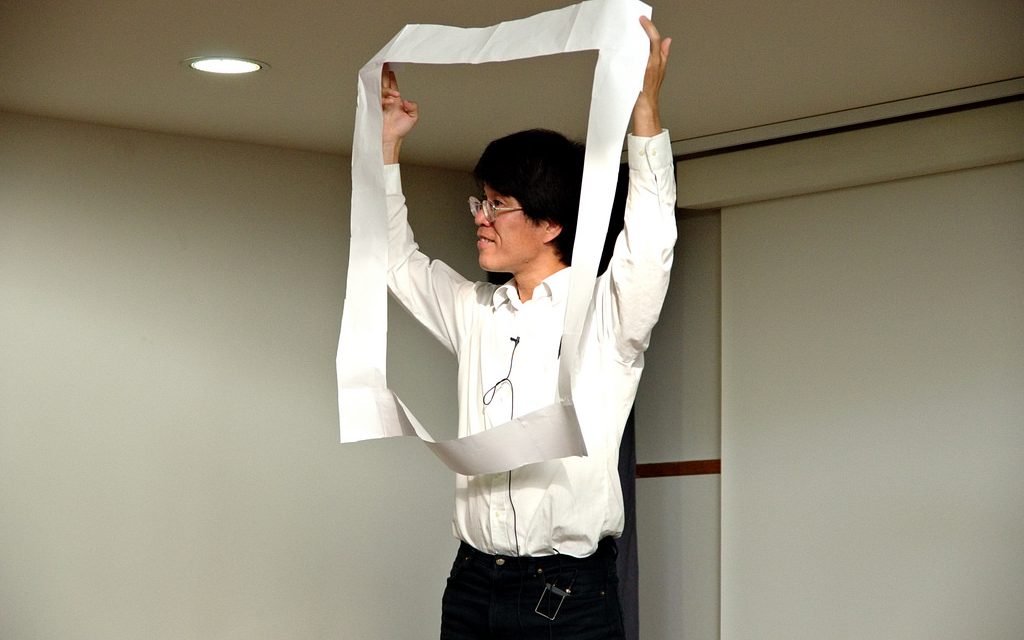August 2, 2018, 2:55 pm

Despite being one of the most respected names in academic mathematics, Tadashi Tokieda took a somewhat different path to many of his colleagues. At the age of 14, he left Japan alone to study in Paris and labels his time as a painter “his first career”. Having studied classical philology, Tokieda stumbled upon mathematics somewhat by accident.
In need of a book for a long train ride, Tokieda happened across a biography of physicist Lev Davidovich Landau in his university library. The Soviet, recognised as a math pioneer, was nearly killed when a lorry crashed into his car. When he regained consciousness, Landau teased his son for not being able to solve a mathematical problem.
Read more:
“He joked, ‘Igor, you regard yourself as an educated adult, but you are incapable of a simple mathematic task’,” said Tokieda. “I also considered myself educated, but I had never heard of the task.” The Japanese mathematician resolved to teach himself mathematics using Landau’s recommended technique – a book full of exercises, which Tokieda selected and taught himself Russian to complete.
Tokieda soon moved to Oxford where he earned a bachelor’s degree in mathematics as a British Council fellow, and went to Princeton to complete his PhD. While Landau’s instructions recommend just one way to learn mathematics, Tokieda’s time as a student illustrated to him that that other methods were also possible.
Aspiring mathematicians should focus on what they enjoy, rather than chasing problems that they feel obliged to enjoy, he explained. “Ultimately, that is chasing someone else’s dream. In as much as one can, it helps to have candor with oneself.”
While Tokieda didn’t want to reveal too much before his upcoming presentation, a public lecture at 2018 ICM, he was excited at the prospect of introducing a Rio audience to his sense of wonder in mathematics. His public address shows how everyday objects can become toys and bring mathematic puzzles to a curious mind.
“There is a sense of frustration, because it is work as well as play, but there is also a sense of freedom that comes with the moment when you first figure things out,” he said. “I hope to share the sense of wonder and joy at the universe.”